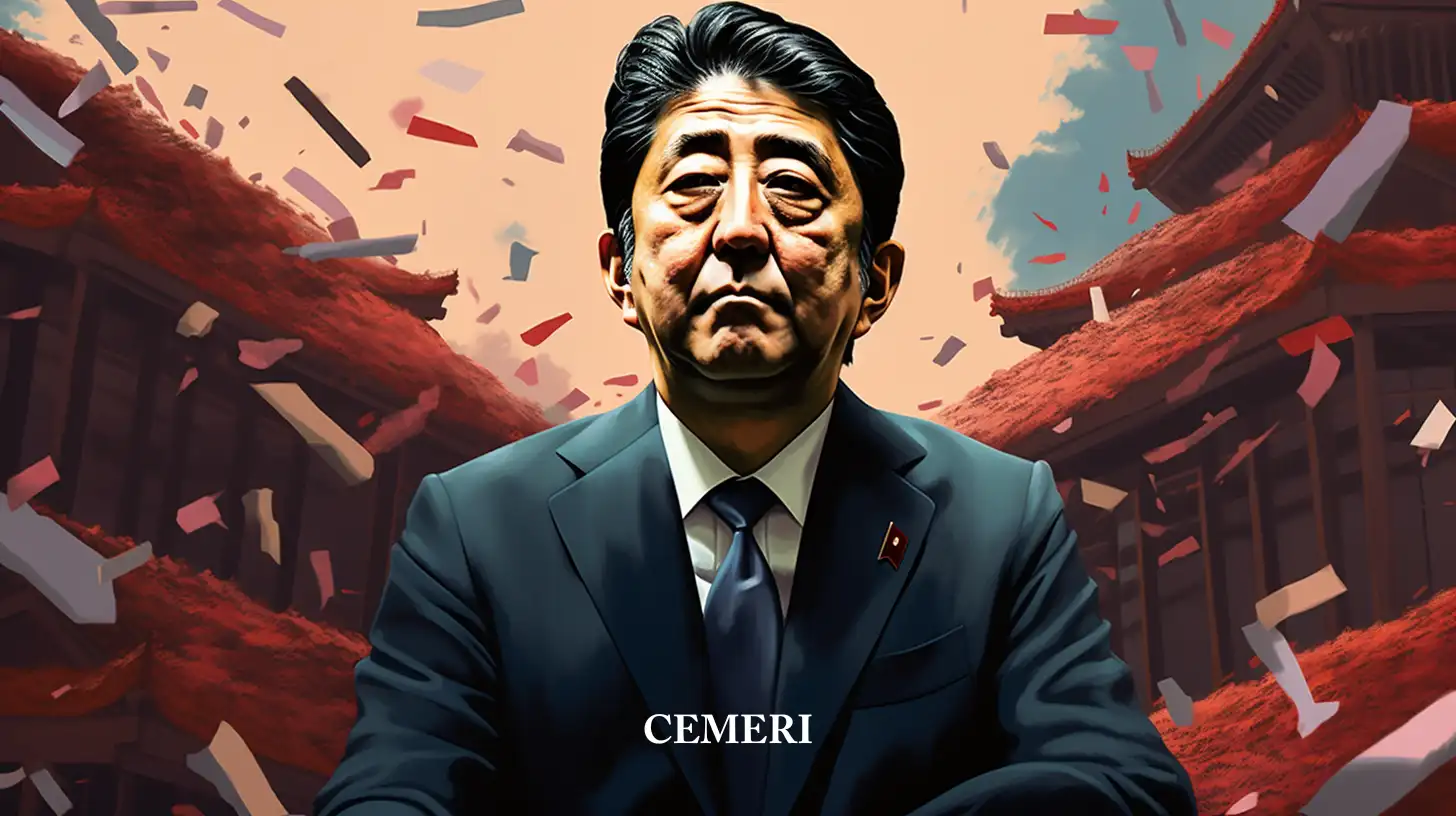Encyclopedia
CEMERI
Who was Shinzo Abe?
- Born into a family with a prominent political background, Shinzo Abe was a leading politician for Japan.

Born into a family with a long history in Japanese politics, Shinzo Abe continued the legacy of his grandfather (former prime minister) and his father (former Minister of Foreign Affairs), becoming an important figure in Japan's governmental history. His career began with government positions as Executive Assistant to the Minister of Foreign Affairs and Assistant to both the President and the Secretary-General of the Liberal Democratic Party (LDP). (BBC NEWS WORLD 2022)
Early Years in his Governmental Career
In 1993, Abe increased his chances within Japanese politics by becoming a member of the House of Representatives. In 1999, he was appointed Director of the Health and Welfare Committee and also Director of the Social Affairs Division of the LDP. During the period from 2000 to 2003, he served as Deputy Chief Cabinet Secretary of the party, later taking the position of Chief Cabinet Secretary from 2005 to 2006. (CNN 2022)
Brief Initial Term as Prime Minister
From 2006 to 2007, Shinzo Abe was elected as Prime Minister of Japan for the first time. During his tenure, various circumstances arose that made it impossible for him to remain in power. The violation of the economic rights of the population due to the loss of pension records by the Japanese public treasury, causing complete uncertainty regarding the legal existence of the money accumulated by 50 million people for their retirements.
Furthermore, discontent was caused by Abe's controversial statement that the "comfort women" (women who worked in Japanese military brothels during World War II) were not forced to work in those spaces. These factors resulted in his resignation from office for the first time. (BBC NEWS WORLD 2022; Barcelona Centre for International Affairs 2017; EFE 2007)
Extensive Mandate as Prime Minister
The peak of Shinzo Abe's political career was his mandate from 2012 to 2020.
In the aftermath of his re-election, he promoted sustained recovery following the 2011 tsunami and Fukushima nuclear accident. In 2013, Abe sparked controversy by visiting a shrine in Tokyo that references Japanese militarism during World War II. This was seen as a possible threat backed by previous Japanese imperialism, causing tensions with China and South Korea, which escalated due to the dispute over the Senkaku Islands. (BBC WORLD NEWS 2022; CNN 2022)
The 2014 re-election was an unprecedented victory. During this period of his tenure as Prime Minister, he took a harder stance in seeking to obtain Japan's collective right to self-defense, as well as authorization for the deployment of troops abroad for national defense and that of its allies. In terms of regional interests, he remained firm in the recovery of the Northern Territories.
Despite his efforts, he failed to amend the constitution or recover the territories. In economic matters, Abe maintained a good relationship with the President of the United States, Donald Trump, which prevented the increase of tariffs and the need for more funding to support the US troops stationed in Japan. (BBC NEWS; Boira 2022)
In his final electoral process, Abe influenced the LDP to hold early elections. He took advantage of the highest level of support shown in the opinion polls at the time, securing his position in power once again. (CNN 2022)
During his final term, in 2018, he diversified his foreign relations. He made a visit to Beijing, breaking seven years of non-existent bilateral state visits. Similarly, he expanded trade relations with the European Union through a new economic cooperation agreement. He also successfully maintained the functioning of the Trans-Pacific Partnership (TPP) despite the abrupt withdrawal of the United States. (BBC WORLD NEWS 2022; CNN 2022; Boira 2022)
However, his government was economically affected by the COVID-19 pandemic. His main alternative to counteract the impact of the decrease in the real annual Gross Domestic Product (GDP) was the implementation of economic policy adjustments known as "Abenomics." These strategies focused on quantitative easing, fiscal stimulus, and structural reforms. However, Japan fell into recession for the first time since 2015. (Barcelona Centre for International Affairs 2017)
Resignation and Death
Therefore, on August 28, 2020, Abe resigned from the position of Prime Minister due to a serious health condition known as ulcerative colitis. He was succeeded by Yoshihide Suga. (BBC WORLD NEWS 2022)
On July 7, 2022, Shinzo Abe was targeted in an attack. He was giving a speech in support of a candidate for the Upper House when he was shot by a former member of the Japanese navy. Medical professionals confirmed his death due to the injuries sustained, officially declaring his assassination on July 8, 2022. (RT 2022)
Sources
BBC News. (2022). Shinzo Abe: Japan's Prime Minister Resigns Over Health Concerns. https://www.bbc.co.uk/news/world-asia-53943758
BBC News Mundo. (2022). Shinzo Abe, el político que rompió moldes en Japón. https://www.bbc.co.uk/mundo/noticias-58069590
Barcelona Centre for International Affairs. (2017). Abenomics and the Japanese Economy: A Progress Report. https://www.cidob.org/en/publications/publication_series/notes_internacionals/n1_169/abenomics_and_the_japanese_economy_a_progress_report
Boira, M. (2022). Shinzo Abe and Japan's Foreign Policy Legacy. Asia Pacific Journal. https://apjjf.org/2022/12/Boira.html
CNN. (2022). Shinzo Abe Fast Facts. https://edition.cnn.com/2013/01/27/world/asia/shinzo-abe---fast-facts/index.html
EFE. (2007). Abe dice que no hay pruebas de que las "mujeres de confort" fuesen forzadas. https://www.efe.com/efe/espana/mundo/abe-dice-que-no-hay-pruebas-de-las-mujeres-confort-fuesen-forzadas/10001-391028
RT. (2022). Ex-Prime Minister of Japan Shinzo Abe Assassinated During Speech. https://www.rt.com/news/546377-shinzo-abe-assassinated-japan/

